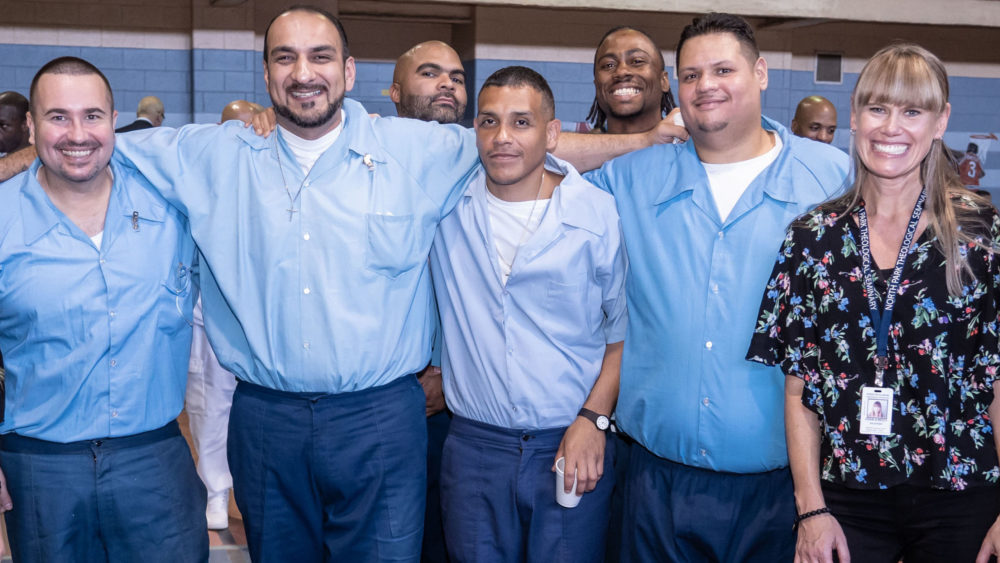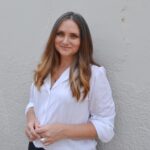Women at work: from a Chicago prison to Tanzanian fishing port to urban Tel Aviv
Meet three Australian Christian women serving Jesus internationally
Vickie Reddy
Where are you based and why?
I have been in Chicago for five years with my husband and two daughters, after moving here from Sydney in 2015 to lead a conference called The Justice Conference, a movement at the intersection of faith and social justice.
What are you putting your energy towards and why?
I am currently pursuing a Masters Degree in Christian Ministry/Restorative Arts through North Park Theological Seminary. I take all of my classes inside a maximum security prison alongside a cohort of 40 incarcerated men who have become my friends and brothers. I have recently also been employed by the Seminary as the Assistant Director of The School of Restorative Arts, the Seminary Prison Program.
What does your daily work look like?
I spend three to four days inside the prison, some for my Masters Degree classes and some for extra-curricular activities. The latter include an arts program we have established to develop the stories of my incarcerated classmates into a performance piece which will be performed by actors in Chicago. We also have think tanks where we seek out ways to change legislation and engage with state officials and legislators. And we have begun a ‘Church Without Walls’ – a space where we are exploring what a collaborative faith community can look like between those on the inside and those from the outside.
What’s the most rewarding part of it?
The past three years being inside prison on a regular basis and learning alongside those who are incarcerated has been the most transforming experience of my life. I think it has saved my faith. I have learnt a bigger faith; I have learnt about aspects of God I would never have known and could never have seen. I have learnt that my way is not the only way – in anything. That my normal is not a universal normal, that my understanding of what is good and beautiful and true is not necessarily the same as everyone else in the world. When I realised this, I was able to begin to truly see from the perspective of someone who is so different to me. I was able to give and receive healing through connection with others I didn’t even I know I needed or had the capacity to give. I have learnt to see the dehumanising and oppressive nature of systems and understand that I can either be a transforming force or continue to perpetuate those systems by my lack of engagement.
What are you hoping to achieve through it?
Ultimately, I am hoping to see freedom for my friends – literal, physical freedom from chains and from bars and from cells. I have learned that this is far more than just advocating for laws to be changed or trying to get people to engage with the issue of mass incarceration. Freedom and healing can only be truly achieved through relationship and community. When we are in proximity with one another, with those who are different to us, we are able to establish mutuality, which is an understanding that we each need the other as much as they need us, and only then can we truly stand in solidarity with one another, realising that our freedom is tied up in theirs. And then we fight for it in a different kind of way.
How does God factor into this work?
I believe God has called those who follow him to the work of restoration and healing of all things. That we are to be agents of transformation. I believe we are called to actively seek out the flourishing of all people and of all creation, that we are to work toward God’s kingdom being established on earth as it is in heaven. Freedom and redemption and healing are all for now, not just for some time in the future, and that compels me to act wherever those things do not exist and wherever I have the ability to do so. I don’t believe I can call myself a follower of Jesus and not engage issues of injustice in a way that breaks broken and oppressive systems and structures. I think the Bible is very clear through the words of the prophets and the life and words of Jesus that this is how we are to live. I want to see my friends walk out of prison because I believe in redemption and restoration, and I believe that it is the work of the church to fight against systems that are the antithesis of those things.
What’s one big challenge that Eternity readers can add to their prayer list?
That my friends would be released from prison. We are working with legislators and people in authority in our state and we are very hopeful. It is a scary thing – hope. But that this year, a number of them would be released, that they can live a life that is flourishing, where the years that were taken can be restored. Where they themselves can be restored and healed. And that I would not grow weary in the work that is hard and frustrating and at times seems like one step forward, three steps back.
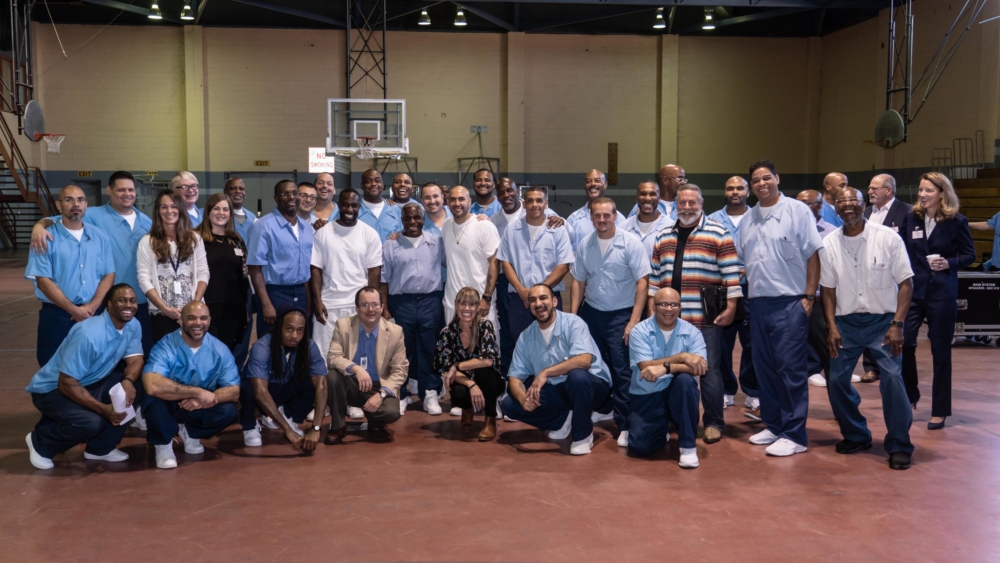
Tamie Davis
Where are you based and why?
I live in Dar Es Salaam in Tanzania. It’s a city of about five million people and I live here with my husband and two little boys. We’re gospel workers of the Church Missionary Society (CMS) Australia, and my husband works as the staff coach for Tanzania Fellowship of Evangelical Students.
What are you putting your energy towards and why?
Some days the majority of my energy goes towards trying to work out why there is no water coming from the taps! Other days it’s devoted to my two little ones – growing up between cultures is a pretty tricky thing to do! And about half the time, I’m working on a PhD about Tanzanian women’s theology of prosperity. We in the West hear a lot about the excesses of the Big Men of African mega-churches, and how this exploits the poor and the vulnerable. That’s absolutely a true story, but there’s a danger to the ‘single story,’ to use the words of [Nigerian author] Chimamanda Ngozi Adichie. I’m hoping to tell another story, because during our seven years I’ve met a different kind of teacher, one who is female and grassroots. She’s talking about prosperity too, but differently from what we might expect.
What does your daily work look like?
I’m only at the very start, so at the moment it looks like sitting in my rocking chair in my ‘nest,’ as we call my study, reading academic articles and books on my computer. I try to take a five-minute break every hour or so, which often involves jumping on the trampoline outside! As I go on, my work will involve more fieldwork and chatting to women preachers and teachers about how they see things.
What’s the most rewarding part of it?
On a personal level, it’s rewarding to feel like I’m doing something I can do and that I’m good at. Over the past several years, my work has been cultural adjustment, parenting small ones, and grieving. All of these experiences are associated with feelings of inadequacy and overwhelm. But even though I’m intimidated by the idea of a PhD, the actual experience of the study day to day is one of familiarity and competence. Plus, it’s heaps interesting! It’s a privilege to learn from others.
What are you hoping to achieve through it?
There’s kind of a consensus in the world that Africa has become a major centre of Christianity, but we in the West still tend to assume that we are the theological authority, or we have our theological discussions without reference to other Christians around the world. I hope to highlight the efficacy and sophistication of the theology of these Tanzanian women, and call all of us to listen to and learn from them.
How does God factor into your work?
This is such an interesting question, because Africans often experience God very differently from how we Westerners do. Doing this work brings out very different aspects of God’s character, and that can be unsettling, though I think ultimately it’s enriching.
What’s one big challenge that Eternity readers can add to their prayer list?
Work and research permits and dealing with government bureaucracy an be stressful. Pray that ours would line up so I have enough time to finish my research.
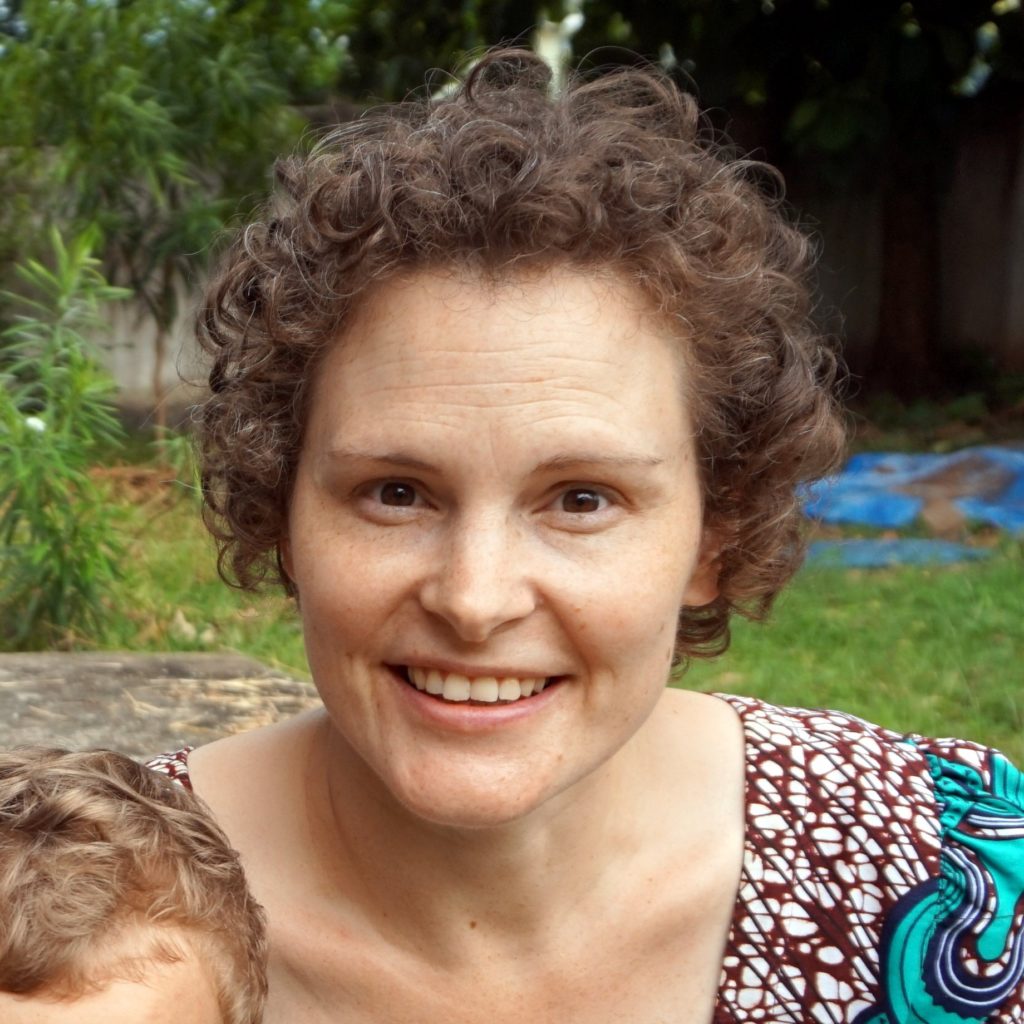
Tamie Davies
Catrina Henderson
Where are you based and why?
I’m currently based in Tel Aviv, Israel, pioneering a new church (Hillsong Church) there.
What are you putting your energy towards and why?
I’m the Lead Pastor of Hillsong Israel so that’s my focus … and as I pioneered from the ground up, that’s where the majority of my energy has been devoted … and running a few marathons! Ha! Running is my happy place.
What does your daily work look like?
I wish I knew! It’s never the same! There’s lots of team building and pastoring people, both of which I love, especially when you’re the only pastor on staff … and obviously running church services and small groups. There’s also all the administrative, financial and logistical sides of church planting, which are quite the adventure in this part of the world. Plus the bridge building, both with local community organisations that we want help serve our community alongside, and local people just get to know. They are the main things, but in Israel you just never know!
What’s the most rewarding part of it?
Seeing people find “home” in our church family.
What are you hoping to achieve through it?
I am hoping to continue to build a healthy spiritual home for our community and extend the borders of our “home” so we can embrace more people both in Tel Aviv and eventually beyond.
How does God factor into this work?
He is all!!! To do what we are doing takes daily miracles.
What’s one big challenge that Eternity readers can add to their prayer list?
One!?! Ha ha. For God to make a way for us to have the right people in the right places for us to effectively build and serve our community.
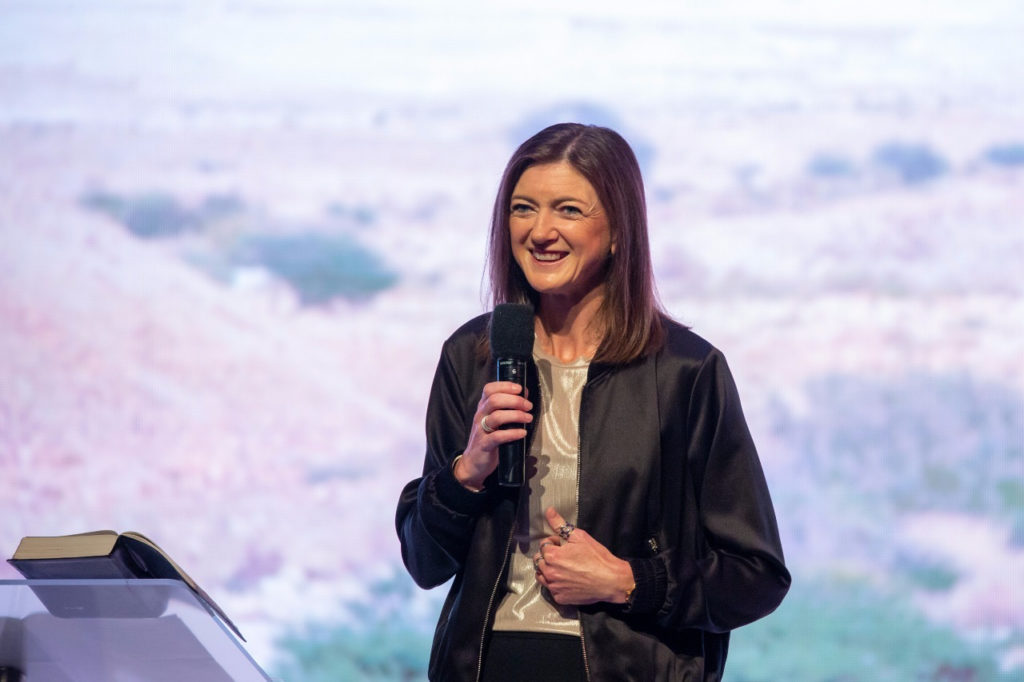
Catrina Henderson
Email This Story
Why not send this to a friend?
